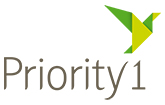
With costs of living on the rise and wage growth stagnating, it’s not hard to see why Australian households are increasingly feeling the pinch.i In fact, a recent Ubank survey revealed 59% of Aussies admit their current financial situation causes them stress or loss of sleep. Even in the oft-labelled ‘Lucky Country’, this is a worrying statistic.
Financial stress can be constant and at its worst crippling, but with a bit of teamwork, solid communication, and a dash of discipline you can get your finances under control.
Communication
Often what aggravates our financial stress isn’t just the lack of funds but the way it affects us interpersonally. In this sense, families, couples and friends all need to work out healthy ways to communicate about cash. People have varying attitudes towards their finances and sometimes differences in approach are hard to reconcile. A good approach, as in most things in life, is to communicate openly and honestly. Perhaps it’s time to schedule a family meeting and talk about finances in a constructive, non-judgmental way, making sure everyone is aware of what the situation is, and ensuring you all have the same expectations.
Learning to say no
We all have those friends who seem to always be doing things. Out at the movies. On another holiday. Having what seems like weekly glamorous dinners. And, if they are splashing it all over their socials, it’s hard not to feel envious. Or to want to join in when they invite you along to something fancy. Of course, we all need to splurge every now and then. But you don’t have to keep up with the Joneses. Learning to say no is an important step towards financial freedom. But how do you do it?
Well an outright no can often be a bit blunt. Why not instead suggest an activity that’s a bit cheaper? A picnic, or a walk. Either that or turnoff the noise on your socials. And stop comparing yourself to others.
Crunching the numbers
Once you’ve figured out how to communicate about finances, it’s time to look at the numbers themselves. If you haven’t already, draw up a household budget. Often people avoid these out of fear of appraising their expenditure or just because they see the task as too tedious. Luckily, there’s a plethora of online applications now which make the task simple. Some examples include: YNAB (You Need a Budget) and Mint.
Look at your spending habits
In the age of direct debit, it’s easy to forget about certain things you’re paying for. If the money just leaves your account, especially if it’s not a large amount, it’s hard to believe it was even there in the first place. It won’t take long to review what you’re spending money on and where, and decide what’s really important.
Dial down your debt
With Australian household debt amongst the highest in the world it may be time to look at how you can work towards reducing your debt.ii There are multiple ways you can do this and it will depend on your individual circumstances but it’s worth doing your research or speaking to us. Don’t sweep it under the rug though, as working out a plan to reduce your debt could make a big difference not only to your bottom line but also your wellbeing.
Manage your stress
It’s important to remember that financial stress operates chemically the same way as other stressors, meaning to combat it all your usual tricks should still help. Make sure you’re exercising regularly, sleeping well, eating healthy, staying social, and taking time to be mindful. Sure, these practices won’t actually reduce your financial burden, but they will leave you in the right mind frame to take appropriate steps.
While financial stress can be debilitating, you don’t have to suffer alone. The team at Priority1 Wealth Management Group can help you get on top of your situation by making a practical plan going forward. Contact us now.
i https://www.rba.gov.au/publications/bulletin/2018/mar/pdf/wage-growth-in-advanced-economies.pdf
ii http://www.abc.net.au/news/2018-01-18/household- debt-extremely-elevated-and-tipped-to-grow/9340880
